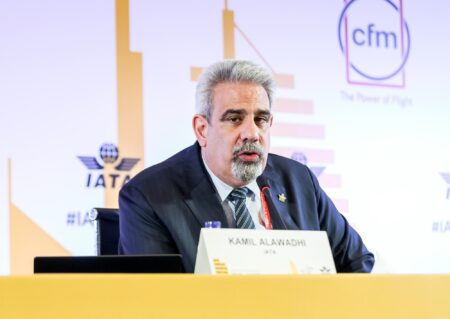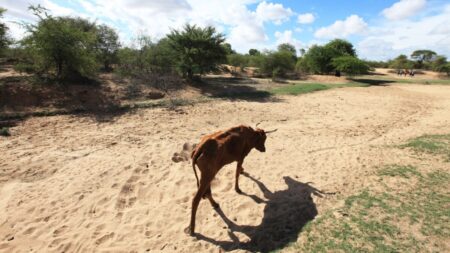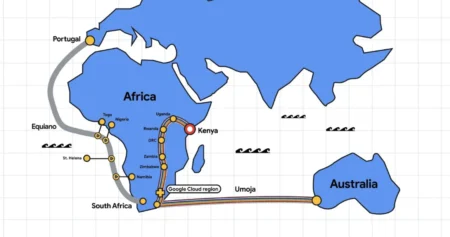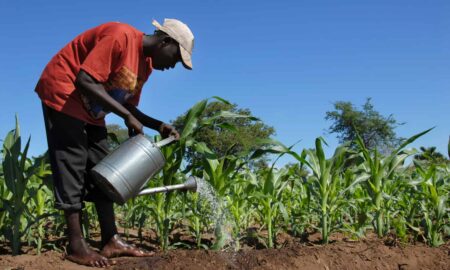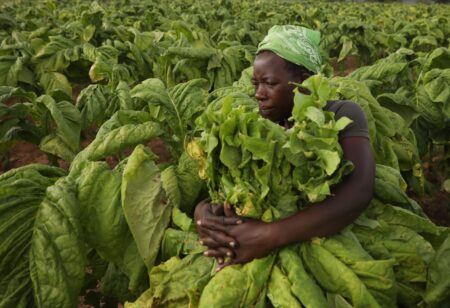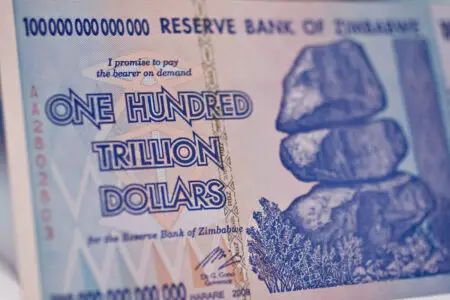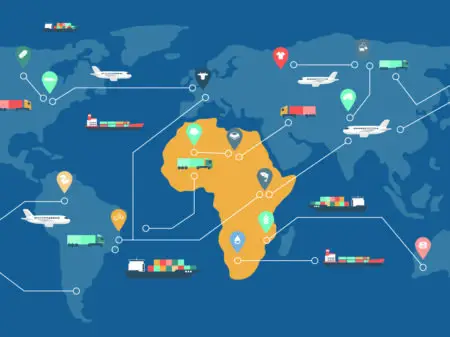- Africa’s new dawn: the rising role of digital and AI in agriculture
- Can Dangote Refinery Transform Africa Energy Ambition
- Gallup Survey: 80 per cent of Kenyan Workers Are Disengaged and Seek New Opportunities
- Madagascar Man Freed from 5KG Tumor After 15-Year Struggle
- How women in Africa are perceived and treated
- Sugar consumption in Kenya to Increase to 1.23 Million Tonnes
- Can Somalia and Turkey Oil deal Bring Change in Somaliland
- Remittances to Kenya dropped to $371.6 million in June, marking a six month low
Browsing: zimbabwe
- AI in agriculture is being used to drive the sourcing of real-time data, perform predictive analysis, and run algorithms that optimize farming practices.
- In South Africa, Kenya, and Zimbabwe, ITIKI, an innovative project is tapping indigenous environmental knowledge among African communities, integrating it with AI to predict droughts with better precision.
- GSMA: AI in agriculture is poised to enable the deployment of innovative digital financial solutions such as credit and insurance products for millions of farmers.
In Africa, a continent of over 1.2 billion people, agriculture remains the primary economic activity, accounting for 17 percent of the GDP on average while offering jobs to nearly 60 percent of the population.
The bulk of the food produced in Africa or about 80 percent is, however, attributable to the effort of smallholder farms, where women provide much of the workforce. Unfortunately, these smallholder farmers continue to face multiple challenges, a scenario that …
- Algeria tops countries holding airlines’ blocked funds in Africa at $261 million followed by countries within the XAF Zone that are trapping $140 million.
- Ethiopia has $115 million in blocked funds for airlines while its neighbour Eritrea is sitting on $75 million.
- Zimbabwe closes the top five countries with blocked funds at $69 million.
Airlines across the world continue to struggle to repatriate their profits, with several African countries accounting for the bulk of blocked funds at $880 million. This amount, which represents 52 percent of the total $1.68 billion blocked funds globally continues to act as a hindrance to the growth of the industry post-Covid-19 fallout.
Data from the International Air Transport Association (IATA) has single out Algeria, the XAF Zone, Ethiopia, Eritrea, and Zimbabwe as the top five countries in Africa where airlines are struggling to repatriate their profits.
Across Africa, Algeria tops among …
- The IMF forecasts that Zimbabwe’s economy will decelerate to about 2% this year, down from 5.3% in 2023, due to a severe El-Niño-induced drought.
- Declared a national disaster in April 2024, the El-Niño-induced drought in Zimbabwe has severely hit agriculture, and tourism while sparking human-wildlife conflict.
- Traditional grain suppliers Zambia and Malawi are unable to meet Zimbabwe’s needs, compelling Harare to import GMO maize from South Africa.
The International Monetary Fund (IMF) has projected that Zimbabwe economy will decelerate to about 2 percent this year, down from 5.3 percent in 2023, primarily due to a severe El-Niño-induced drought, which has adversely affected agriculture, a critical sector for the Southern African country’s economy.
Declared a national disaster in April 2024, the El-Niño-induced drought in Zimbabwe has severely depleted water sources, with Lake Kariba, one of the country’s primary water reservoirs, holding only 13 percent of its capacity. The dire situation is …
- Google is rolling out Umoja cable, the first-ever fibre optic link directly connecting Africa with Australia, aiming to enhance global digital infrastructure and foster economic growth.
- The Umoja project, developed in collaboration with Liquid Technologies, will improve connectivity and drive digital inclusion across Africa.
- This initiative is part of Google’s long-term commitment to Africa’s digital transformation, with investments in infrastructure, cybersecurity, and AI innovation to support growth.
In a deal set to revolutionize digital connectivity across continents, tech heavyweight Google has announced the launch of Umoja, the first-ever fibre optic link directly connecting Africa with Australia. This project is poised to enhance global digital infrastructure, foster economic growth, and drive digital inclusion on a new level scale.
The Umoja cable, anchored in Kenya, will traverse a diverse array of African countries, including Uganda, Rwanda, the Democratic Republic of Congo, Zambia, Zimbabwe, and South Africa, before crossing the Indian Ocean …
- Zimbabwe is phasing out ZWL as it ushers a new gold-backed currency, ZiG, starting today, Monday, 8 April 2024.
- The ZiG is anchored by 2.5 tonnes of gold in the central bank’s vault and a basket of foreign currencies held as reserves.
- Zimbabwe’s new Central Bank Governor has announced sweeping reforms as the new currency enters everyday use.
Zimbabwe launched a new currency on Friday, 5 April 2024, called the Zimbabwe Gold or the ZiG. The launch of the new currency occurred during the announcement of the country’s latest Monetary Policy Statement (MPS) in an event presided over by newly appointed central bank governor John Mushayavanhu.
The MPS introduced measures and interventions to anchor the local currency and ensure exchange rate and price stability. The old currency, the ZWL, had depreciated to its lowest against the US dollar, roughly ZWL 32,000. It lost over 90 per cent of its …
- Irrigation in Africa has the potential to essentially double agricultural productivity.
- In Sub-Saharan Africa, irrigation is a key factor in achieving food security, yet it remains vastly under-utilised.
- FAO advises that each African country assess its irrigation potential as the basis for planning sustainable food production.
Irrigation in Africa has the potential to essentially double agricultural productivity, boosting output by up to 50 per cent. This optimistic evaluation is provided by the UN Food and Agriculture Organisation (FAO). However, even with this potential, FAO shares concerns that it is vastly underutilized, with agriculture in Africa remaining predominantly rain-fed.
“Although irrigation in Africa has the potential to boost agricultural productivity by at least 50 percent, food production on the continent is almost entirely rainfed,” reports FAO.
According to FAO data, the area under irrigation in Africa currently makes up just 6 percent of the total cultivated area. In Sub-Saharan Africa, irrigation …
- Tanzania to earn $400 million annually from tobacco export/sells.
- The country now ranks second largest tobacco producer in Africa after Zimbabwe.
- Tobacco has no known health benefit. On the contrary, it causes disease, disability and premature death. Over 6 million people die globally every year from tobacco-related illnesses.
Tanzania has been ranked as the second-largest producer of tobacco in Africa, falling behind only neighboring Zimbabwe, even as tobacco’s toll worsens globally. The ranking comes after a bumper harvest in the year 2022/2023, as announced by Tanzania’s Minister for Agriculture, Hussein Bashe.
According to the minister, the country’s tobacco production has more than doubled over the last year alone to 122,858 tonnes in FY2023/2024 from 50,000 tonnes earlier.
As of December last year, the export value of tobacco stood at $316 million, and with the increase in output, the minister is confident that this year the country will attain its …
- Zimbabwe is the worst hit in Africa with food inflation at 26% YoY, followed closely by Egypt at 18%, Malawi at 9%, and Guinea at 7%.
- The persistent weakness of the Zimbabwe dollar has been a driving force behind the steep price growth throughout 2023.
- Real food inflation, calculated as the difference between food inflation and overall inflation, provides a dire picture of the strain on households’ budgets in these countries.
The economies of Zimbabwe, Egypt, and Guinea are facing significant challenges due to soaring food inflation, placing them among the top 10 countries globally most affected by this roiling crisis.
According to the World Bank’s February 2024 update, Zimbabwe leads the pack in Africa, with food inflation at a staggering 26 per cent year-on-year, followed closely by Egypt at 18 per cent and Guinea at 7 per cent.
Real food inflation, calculated as the difference between food inflation …
- Africa’s economic growth in 2024 is expected to be upward with the real GDP projected to grow by 3.2 per cent, up from 2.6 per cent in 2023.
- East Africa, encompassing Ethiopia, Kenya, Uganda, Rwanda, Tanzania, and the DRC, will again power the continent’s growth prospects.
- Despite the projected continental growth, the intelligence unit faces substantial risks, including security threats, political instability, and debt repayment burdens.
Africa’s economic growth 2024
According to the international research unit, Economic Intelligence, Africa is expected to grow at the second-fastest rate among major regions globally in 2024. The unit ranks behind Asia, which China and India will propel.
Except for Sudan and Equatorial Guinea, whose economies appear destined to decline this year, most African governments are predicted to report good growth stories.
The real African GDP is expected to rise by 3.2 per cent in 2024, up from 2.6 per cent in 2023, …
- Zimbabwe earned US$209 million from lithium exports in the first nine months of 2023.
- The country’s lithium potential has captured significant attention, particularly from Chinese investors who have injected over US$1 billion in the mineral’s value chain.
- Lithium is a critical component in the production of electric vehicle (EV) batteries. Global electric vehicle (EV) car sales increased by 60 per cent in 2022, reports the International Energy Agency.
Zimbabwe is emerging as a pivotal player in satisfying the surging demand for lithium, a vital element used in the production of electric vehicle (EV) batteries. Zimbabwe has the largest lithium reserves and mines in Africa, while globally the country ranks high amongst the leading lithium producing and supply countries after Chile, Australia, China, Argentina and Brazil.
According to an article by Reuters published on November 1, 2023, Lithium is set to become Zimbabwe’s third biggest mineral export after gold and …






